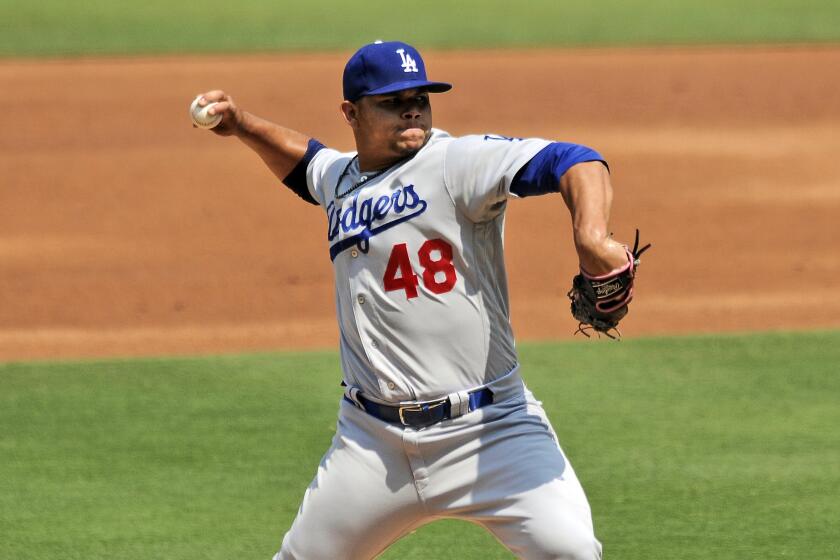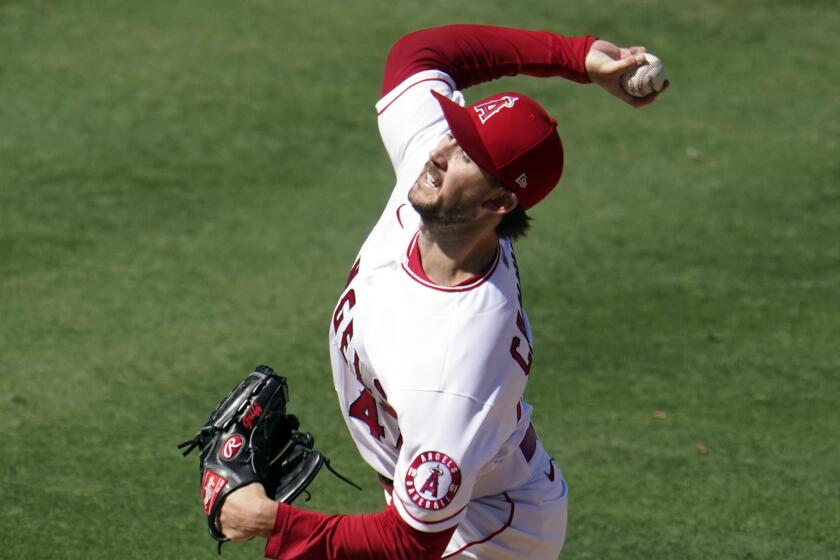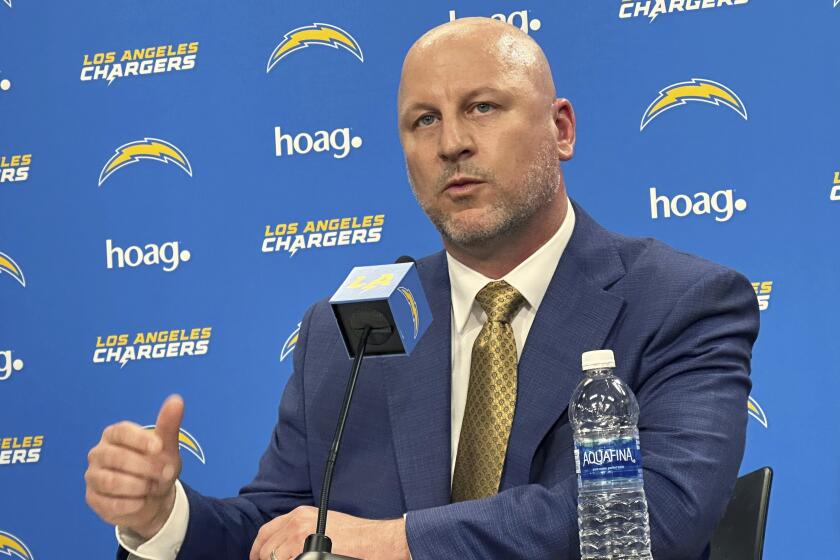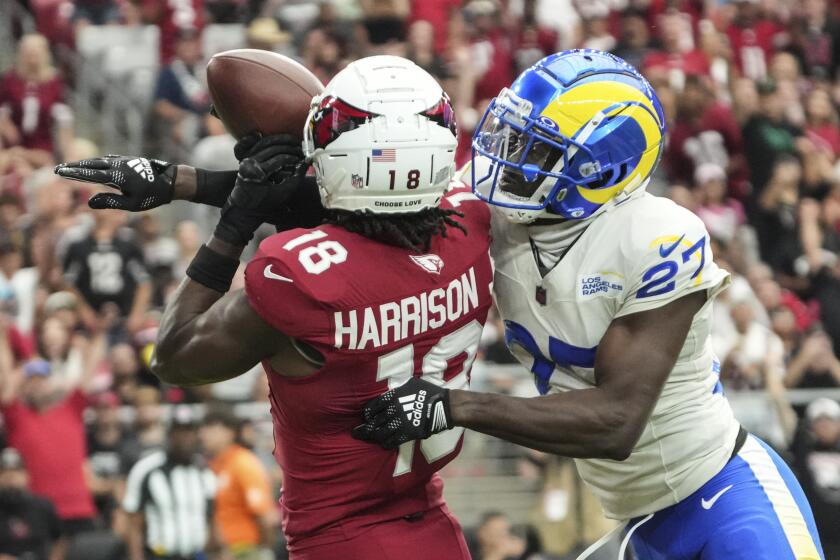Expanded playoffs beyond 2020? Inside the MLB push — and the pushback
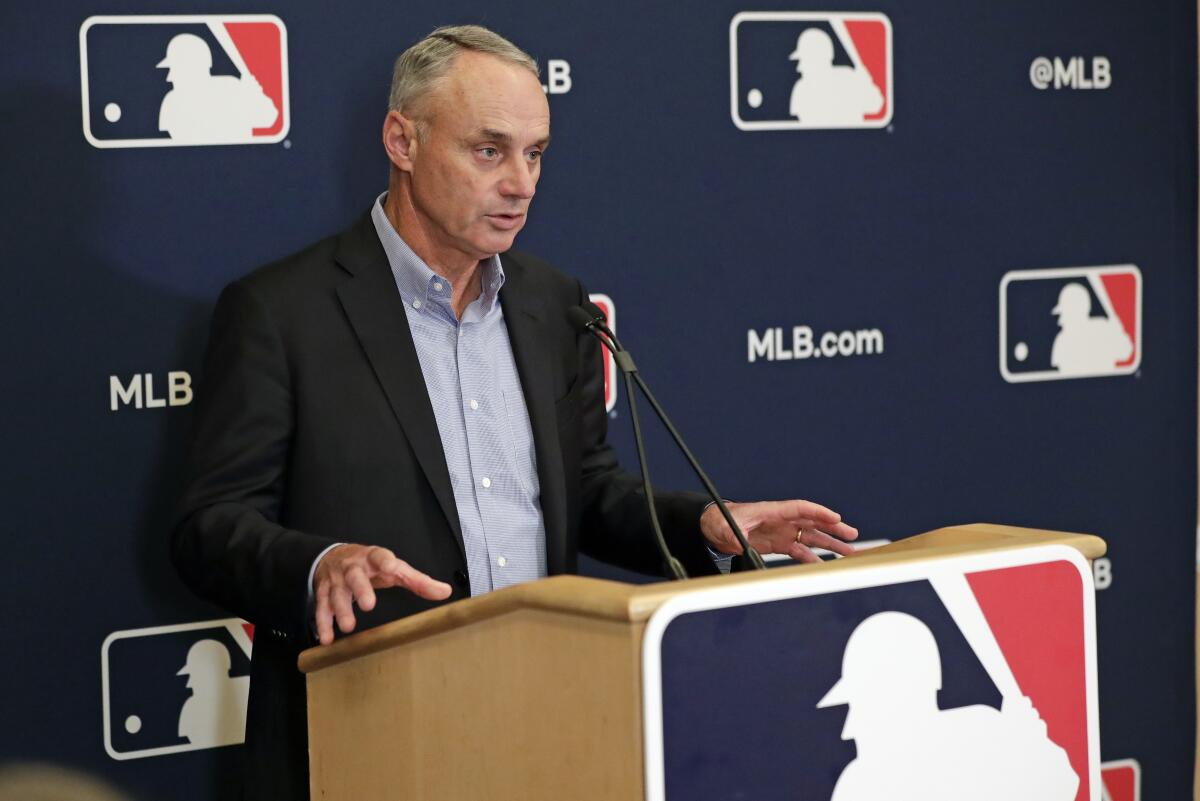
October Madness is just about upon us. In a virus-shortened Major League Baseball season in which more than half the teams make the playoffs, at least one is likely to have a losing record.
It wouldn’t be the first time. In 1981, the Kansas City Royals made the playoffs with a 50-53 record. A player strike had interrupted the summer, and baseball celebrated its return by splitting the season in two. The Royals finished fifth in their division in the first half, then first in the second half, good enough for a ticket to October.
The split season was a gimmick, just like this season’s 60-game schedule and 16-team playoff field, a way to make the best of a bad situation. Few took the gimmick seriously, let alone considered it a sign of progress and innovation. It was strictly minor league.
In 2020, though, commissioner Rob Manfred considers an expanded playoff field a sign of progress and innovation.
“Hopefully, it will become a permanent part of our landscape,” Manfred told a Hofstra University business school gathering this week.
His comment did not draw rave reviews. Of the 7,660 respondents in a Baseball America poll asking whether the 16-team field should become permanent, 79% voted no. Of the 12,064 respondents in an MLB Cathedrals poll asking the same question, 84% voted no.
The pitching situation for the Dodgers looks like elements for another postseason meltdown are in place, writes columnist Dylan Hernández.
“When you talk about a change in baseball,” Manfred said, “in the abstract, the natural reaction is to say, ‘The game is great. Why are you fooling around with it?’ I get that.”
So why is he fooling around with the playoffs? Follow the money.
More playoff games mean more television revenue for the owners, who hire and fire the commissioner.
“I actually don’t work with them,” Manfred said. “I actually work for them. Believe me, I try never to lose sight of that.”
Maybe the diehards should not carry the day. As Manfred aims to grow the fan base, maybe he should listen to the television executives who tell the league that more playoff games, and in particular elimination games, can deliver a broader audience.
“We’re going to have a bracket, obviously,” Manfred said. “People love brackets, and picking who is going to come through those brackets.”
Duke is not going to lose to a 16th seed, even if most of America would rejoice, but major league teams do not play 162 games just to secure the top seed.
In 2020, the Dodgers are in line for the top seed in the National League, but they still will face a team from the big leagues, not the Big South. They still will play a three-game series in the first round, whether or not they win their division.
“As far as the benefit, it’s nonexistent,” Dodgers manager Dave Roberts said.
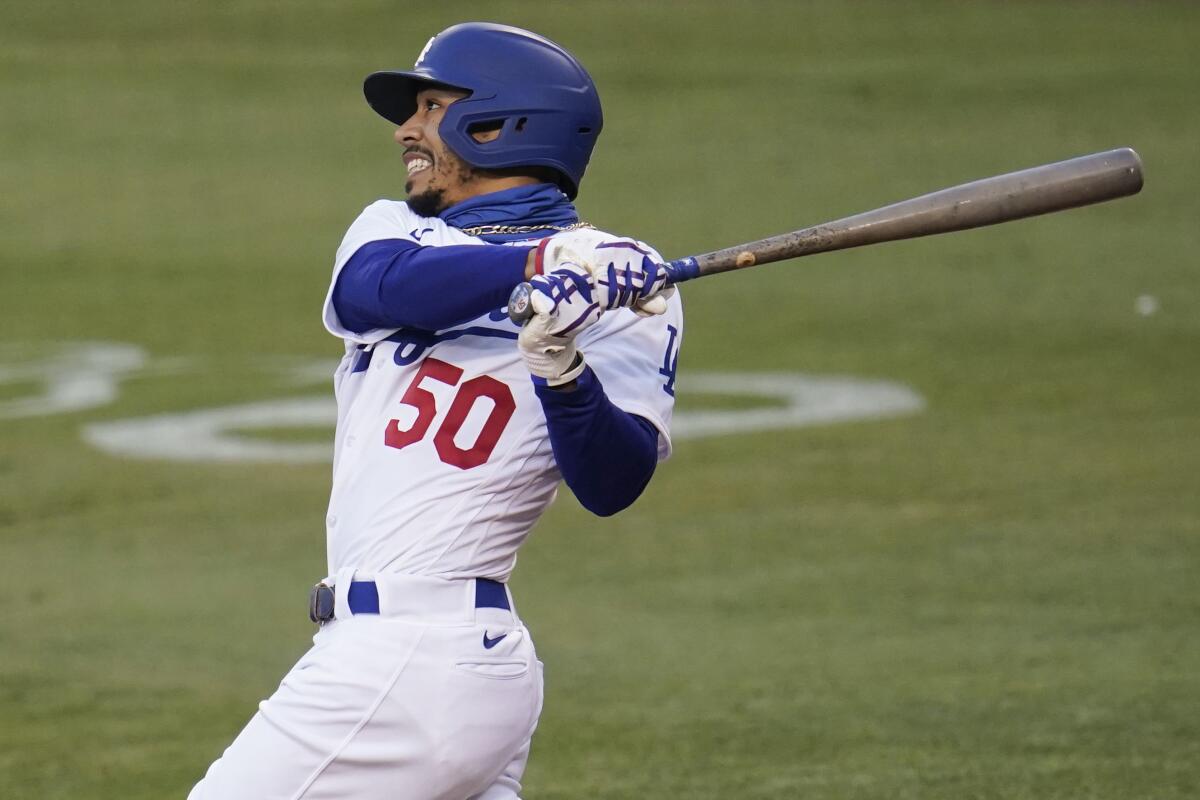
MLB floated an expanded postseason format before the pandemic, with a 14-team proposal that would reward the top seed in each league with a bye into the division series and let the other division winners select their first-round opponents. There no doubt will be other ideas, and tests of how deep the tolerance of mediocrity should run.
For close to a century, MLB would not admit a team to the postseason unless it had won its league or, after leagues split into divisions, won its division. Under this year’s format, a team that finishes fourth in its division could make the playoffs.
But, in a post-pandemic era, the prospect of additional MLB revenue from an expanded postseason has gone from “we’d like it” to “we need it.” As a high-profile example, the New York Yankees’ ticket revenue next year could be down 33% from last year, and ticket sales might not fully recover until 2024, according to Fitch, the credit rating agency, which this week evaluated a Yankee Stadium bond refinancing.
That provides the players with some rare clout in labor talks. The players union must approve any playoff expansion, and it is no secret how badly the owners want that money. The league included an expanded postseason in each of the four offers it made the union in return-to-play negotiations. After negotiations failed and Manfred imposed the season, the league again asked for an expanded postseason for 2020 and 2021; the players got $50 million and signed off for this year only.
“There’s a lot of concern about it, whether it’s even a good idea,” a high-ranking baseball official said, “There’s a lot of concern about whether it’s going to incentivize or disincentivize competition.”
Angels manager Joe Maddon believes his team only needs a couple of solid pitchers to bolster the staff and make the team more competitive.
Would the Dodgers have spent $392 million on Mookie Betts as the final piece of a World Series puzzle if they knew they might start the playoffs with a three-game crapshoot every year, whether they won 85 games or 100? Would that three-game crapshoot tempt more owners to spend on building a winner?
Or, if the league increases the number of wild-card teams but makes it harder for them to advance in the postseason, would owners of mediocre clubs spend just enough to say their team is a contender, even looking up at .500?
The union could work with owners on ways to incentivize winning. If half the teams make the playoffs and your team is not one of them, for instance, perhaps your team should draft last instead of first. Teams that play to win could be rewarded with extra draft picks, or a larger allowance for signing international players.
And, if an expanded postseason is so lucrative, the owners should share the wealth. Over the life of the current collective bargaining agreement, league revenues have risen, but salaries have not. The owners outsmarted the players at every turn.
The luxury tax threshold became a de facto salary cap. The promise of big dollars in salary arbitration and bigger dollars in free agency became increasingly limited to elite players, with the rest at risk of replacement by younger, cheaper players. Teams manipulated service time, willfully reducing their chance to win so a player would become a free agent in seven years, not six.
Analytics put more value on younger players, and salaries should reflect that. That can be negotiated as part of a new collective bargaining agreement. The players won’t get everything they want, but they have the leverage to just say no to a permanent postseason expansion.
Expanded playoffs might be good for the game, and for growing its fan base, so long as the champion is perceived as legitimate. If Manfred wants to sell this tournament as baseball’s future, he had better hope the Dodgers do not lose in the first round. Busted brackets are not what baseball is about.
More to Read
Go beyond the scoreboard
Get the latest on L.A.'s teams in the daily Sports Report newsletter.
You may occasionally receive promotional content from the Los Angeles Times.

